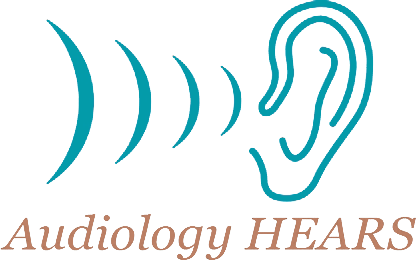Lights dim and the screen comes to life with vivid imagery and captivating sound. Going to the movies is a favorite pastime, offering an escape into fantastical worlds and stirring emotions. However, amidst the excitement, you might be damaging your hearing health.
The Power of Sound: Enhancing Movie Magic
From the roar of a T-Rex to the subtle rustle of leaves in a gentle breeze, sound breathes life into cinematic storytelling. Whether it’s the thrilling crescendo of an action-packed scene or the tender whispers of an intimate conversation, audio plays a huge role in shaping our movie-going experiences.
However, the immersive nature of movie soundtracks can also pose risks to our hearing health. Theaters deliver sounds that transport audiences into the heart of the action, and we often overlook the potential impact on our hearing.
Understanding Sound Levels
Sound is measured in units called decibels (dB), with each increase of 10 dB representing a tenfold increase in sound intensity. While the human ear can tolerate a certain level of noise, prolonged exposure to sounds exceeding 85 dB can lead to hearing damage over time.
When you’re at the cinema, sound levels can soar well beyond this threshold, especially during intense action sequences or explosive moments. It’s not uncommon for movie theaters to reach sound levels of 100 dB or more during peak moments of excitement.
Protecting Your Hearing: Practical Tips for Movie-Goers
Despite the potential risks, enjoying movies at the theater can still be a safe and enjoyable experience with a few simple precautions. Here are some practical tips to protect your hearing health while watching your favorite films:
- Choose Your Seats Wisely: Opt for seats away from the speakers to reduce your exposure to high decibel levels. Sitting towards the center of the theater can also help maintain a balanced audio experience.
- Take Breaks: If you find yourself in a particularly loud movie or experiencing discomfort, don’t hesitate to step out for a few minutes to give your ears a rest. Use this time to stretch your legs or grab a refreshing drink.
- Invest in Ear Protection: Consider investing in a pair of earplugs designed for concert or movie use. These devices can help attenuate loud sounds while preserving the clarity of dialogue and music.
- Know Your Limits: Pay attention to how your ears feel during and after the movie. If you experience any discomfort, ringing, or muffled hearing, it’s a sign that you may have been exposed to excessive noise levels.
Navigating the Digital Landscape: Streaming Services and Ear Safety
In addition to traditional movie theaters, the rise of digital streaming services has transformed the way we consume entertainment. With just a few clicks, we can access a vast library of movies and TV shows from the comfort of our own homes. While this convenience is undeniably appealing, it also comes with its own set of considerations for our hearing health.
Just like in a movie theater, it’s important to monitor sound levels and give your ears regular rest periods to prevent overexposure to loud sounds.
A Sound Approach to Movie Enjoyment
In today’s high-definition world of entertainment, it’s easy to get swept up in the excitement of cinematic experiences. However, amidst the action and adventure, it’s essential to remain mindful of the potential impact on our hearing health.
Whether you’re enjoying the latest blockbuster at the theater or streaming your favorite films from home, take proactive steps to protect your ears. By understanding the risks of excessive noise exposure, monitoring volume levels, and prioritizing ear safety, we can continue to enjoy the magic of movies for years to come.
Book a Hearing Test
So, the next time you settle in for a movie night, remember to keep these tips in mind. If you ever have concerns about your hearing health or need personalized advice, don’t hesitate to consult with a hearing health specialist. Your ears will thank you for it, allowing you to enjoy all the sights and sounds of the silver screen with peace of mind. Visit us for a hearing test and find out more about your hearing health. we’ll offer treatment options and more tips for protecting your hearing in any listening environment.
